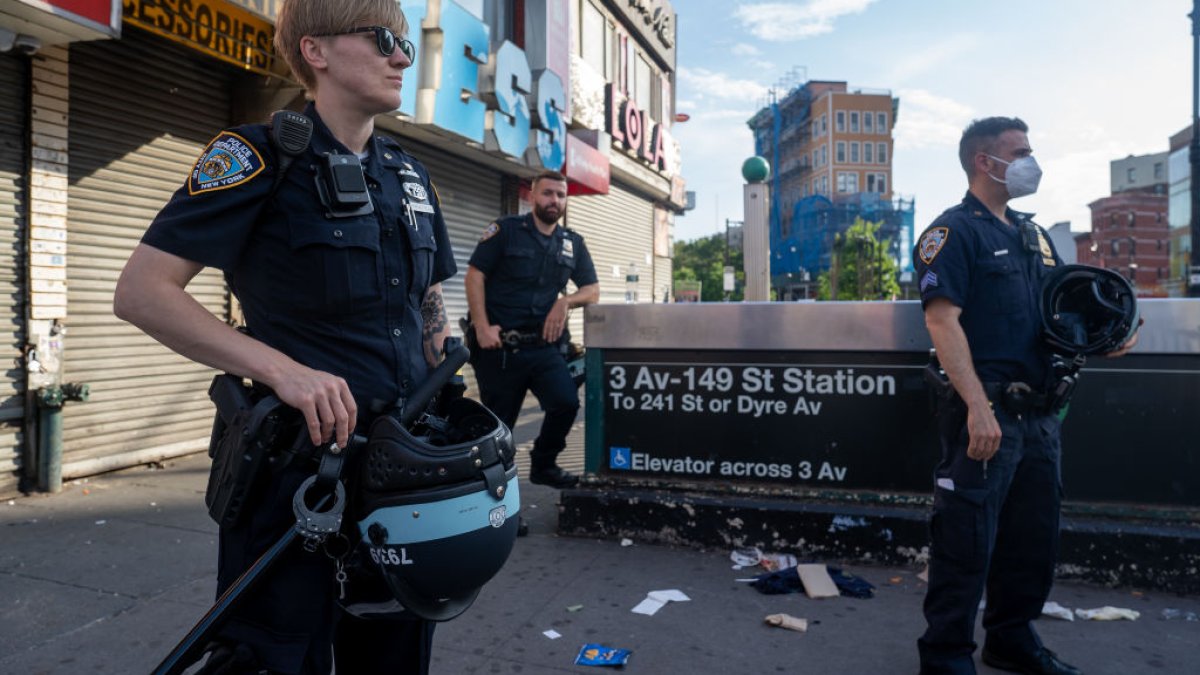NEW YORK – New York City has agreed to pay millions of dollars to settle a lawsuit brought by protesters who say they were assaulted, abused and arrested by police using a technique known as “kettling” during protests. a protest following the murder of George Floyd.
In court papers Tuesday night, the city said it would pay $21,500 each to at least 200 protesters who were arrested, arrested or forcibly confronted by the NYPD during a June 4, 2020 protest in the Mott neighborhood. Bronx Haven.
The city said it will also pay $21,500 per plaintiff for court costs and an additional $2,500 to protesters who received tickets to appear in court, meaning the class action bill could be closer. $10 million or more.
A judge has yet to approve the settlement. Plaintiffs’ attorneys said they believe it will be the highest per-person settlement in the city in a mass arrest class action lawsuit and called it a “historic settlement.”
This is one of several lawsuits alleging New York City police officers abused protesters who took to the streets every night after the police killing of Floyd in Minnesota on May 25, 2020. More than 100 New York City police officers have been cited for misconduct over the days of the protests. Similar protests have taken place in cities and towns across the United States.
During the Mott Haven protest, the NYPD was criticized for harassing protesters, essentially trapping them and giving them no choice but to break the curfew the city had in place to quell the unrest.
“The violence unleashed against us that night was intentional, unwarranted and will remain with me for the rest of my life,” plaintiff Henry Wood said in a statement released through attorneys. “What the NYPD did, with the help of the political powers of New York, was an extreme abuse of power.”
One of the plaintiffs’ attorneys, Joshua Moskovitz, said the NYPD’s actions in Mott Haven were reminiscent of “Bloody Sunday,” in which police beat up civil rights protesters on the Edmund Pettus Bridge in Selma, Alabama. in 1965.
“We hope this agreement marks a turning point for policing in New York City,” Moskovitz said.
In a statement, the NYPD said the protests amid the COVID-19 pandemic were a “difficult time” for officers and the department and that it has since reformed how it responds to protests.
“Much of the NYPD’s policies and training for policing large-scale protests have been redesigned based on the results of the department’s self-initiated analyzes and recommendations from three outside agencies who carefully reviewed investigated during this period,” the department said. “The NYPD remains committed to continually improving its practices in every way possible.”
Civil rights organization Human Rights Watch released a report in October 2020 citing evidence that police were planning an aggressive crackdown on protesters in Mott Haven.
Police used bicycles to form a wall around protesters as officers, some in riot gear, attacked protesters, beating them with batons, kicking and punching them and spraying them with pepper spray, according to the report.
At least 61 people were injured, including a broken nose, missing tooth, sprained shoulder, broken finger, split lip, black eye and bruising.

